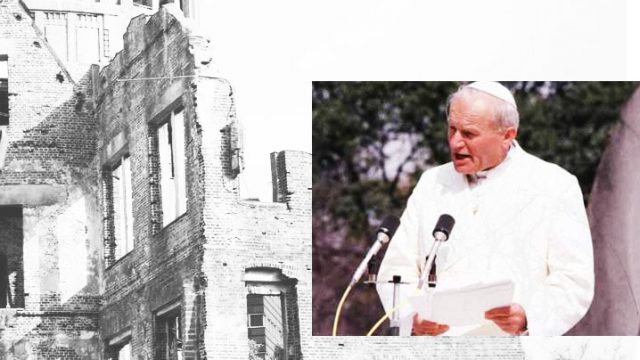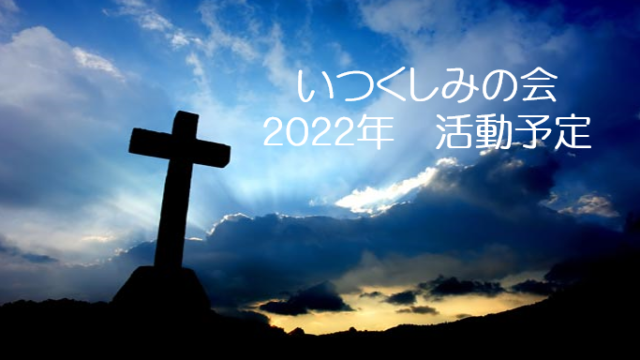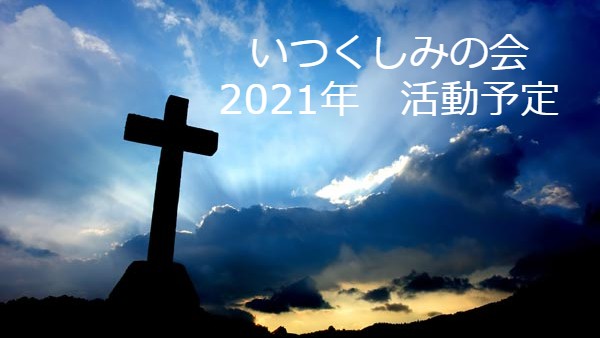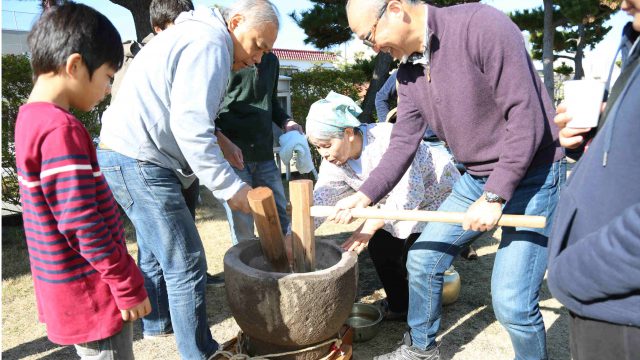戦後60年 平和メッセージ 2005
「非暴力による平和への道」~今こそ預言者としての役割を ~
日本の教会の兄弟姉妹とすべての善意ある人々へ
はじめに
戦後60年目の今年、「日本カトリック平和旬間」 [1] にあたり、わたしたち日本カトリック司教団は日本の教会の兄弟姉妹とすべての善意ある人々へ平和メッセージを送ります。
戦後50年に司教団はメッセージ『平和への決意』を発表しました。その中で、戦前から戦中にかけて日本のカトリック教会が「尊いいのちを守るために、神のみ心にそって果たさなければならない預言者的な役割についての適切な認識に欠けていたことを認め」、「神と、戦争によって苦しみを受けた多くの人々に対してゆるしを願い」 [2] ました。そしてわたしたちの回心のあかしとして、平和への実現に向かって貢献していくという決意を表明したのです。
それから十年を経て、平和への呼びかけにもかかわらず、世界はいまだに様々な暴力の連鎖から抜け出せないでいます。わたしたちは今こそ預言者としての役割、すなわち、「時のしるしを読み解き、神のメッセージを伝える」という役割を果たさなければならない時であると自覚するものです。
人間の尊厳
平和の前提は、まず「人間の尊厳」にあります。わたしたちは、聖書の教えによって、人間の尊厳は人間社会がつくりだしたものではなく、神によって与えられたものであり、誰も侵してはならない普遍的な権利であると信じます。この「人間の尊厳」を前提にすることによってのみ、一人ひとりの基本的人権が守られるだけではなく、異なる文化を持つ世界の人々が一つにつながり、互いに愛しあう関係へと向かうことができるのです。このような理念は、世界人権宣言 [3] や日本国憲法 [4] にも明記され、「人間の尊厳」がすべての人に当てはまる普遍的な共通善であるからこそ、「全世界の国民が、ひとしく恐怖と欠乏から免れ、平和のうちに生存する権利を有する」 [5] と宣言できるのです。
人間の尊厳アジアの国々との和解と連帯
この春、東アジア、とくに中国、韓国では、反日運動がこれまでにないほど激しいものとなりました。このような緊張の背景には、さまざまな理由がありますが、そのひとつとして、日本の最近の動きがあります。具体的には歴史認識、首相の靖国神社参拝、憲法改正論議などの問題が挙げられるでしょう。
「過去を振り返ることは、将来に対する責任を担うことです」と教皇ヨハネ・パウロ二世は広島での『平和アピール』 [6] で繰り返し訴えました。日本人であるわたしたちは過去の植民地支配や武力による侵略という歴史的事実を真摯に受け止め、反省し、その歴史認識を共有することが求められています。そのことが二度と同じ悲劇を繰り返さないことを誓うことになり、将来に対する責任を担うことにもなるとわたしたちは確信しています。
かつて軍国主義政権の圧力のもとで、当時のカトリック教会の指導者は靖国神社をはじめとする神社参拝を心ならずも「儀礼」 [7] として容認してしまいました。このことは過去の出来事として葬り去ることはできません。なぜなら、今まさに同じ危機が目前に迫っているからです。すなわち、憲法改正論議のなかで、政教分離の原則を緩和し、靖国神社参拝を「儀礼」として容認しようという動きが出てきているからです。日本の政教分離(憲法第20条3項) [8] は、天皇を中心とする国家体制が宗教を利用して戦争にまい進したという歴史の反省から生まれた原則なのです。だからこそ、日本国民であるわたしたちにとって、この政教分離の原則を守り続けることが、同じ轍をふまない覚悟を明らかにすることになるのです。
東アジアの人々の信頼を回復し、連帯して平和を築いていくためにも、わたしたちはこれらの確固たる姿勢を示すことが必要ではないでしょうか。
富の公正な分配と環境保全
現在、国家間の経済格差は一向に縮まらないばかりか、むしろ広がっており、さらに富める国でも貧しい国でも、国内での貧富の差が広がってきています。日本も例外ではありません。貧困は、生活苦だけではなく、人の移動とそれに伴う家族の離散、さらには人身・薬物・臓器の売買のような人間の尊厳を踏みにじる問題を生み出しています。教皇ヨハネ・パウロ二世は、現代世界において人権といのちのグローバル化の必要性にふれ、次のように訴えられました。
「排除され疎外されているすべての人が、経済的、人間的発展の圏内に入ることができるよう助けること、このことが実現されるためには、現在、わたしたちの世界が豊富に生産している余剰物を振り分けるだけでは不十分です。何よりもまず、生活様式や生産と消費のモデル、そして今の社会を支配している既成の権力構造の変革が必要です。」
また多くの紛争や暴力は、資源をめぐって起きており、地球環境保全が平和構築へむけて取り組むべき重要な課題であると認識されています。限りある資源を有効に使い、みなで公平に分配し、持続可能な方法で資源を管理し、最貧国の債務問題に取り組むことにより、紛争問題の解決に寄与することができるのです。この貧困をなくし、地球環境を守るという課題は、世界の政府、企業、団体、市民の連帯なくして効果を期待することはできません。
非暴力を貫いて連帯を
2001年9月11日に米国で起きた「同時多発テロ」と、それに続くアフガニスタンやイラクに対する攻撃は、世界に衝撃を与え、深い亀裂をもたらしてしまいました。これらの武力攻撃は多くの一般市民を巻き添えにし、暴力の悪循環をもたらしています。このような中で、多くの宗教者や市民が報復反対と対話による和解を呼びかけました。教皇ヨハネ・パウロ二世は、聖パウロの教えに従って、平和は悪が善によって打ち負かされるときにのみもたらされる辛抱強い闘いの成果であることを明らかにしています。軍備と武力行使によってではなく、非暴力を貫き対話によって平和を築く歩みだけが「悪に対して悪をもって報いるという悪循環から抜け出す唯一の道」 [10] なのです。これはガンディーの非暴力による抵抗運動などが示しているように、多くの人々の共感をよぶものです。この非暴力の精神は憲法第9条の中で、国際紛争を解決する手段としての戦争の放棄、および戦力の不保持という形で掲げられています [11] 。60年にわたって戦争で誰も殺さず、誰も殺されなかったという日本における歴史的事実はわたしたちの誇りとするところではないでしょうか。
暴力の連鎖から抜け出せない現代にあって、この非暴力の精神と実践を積極的に広め、世界の人々と共有することにおいて新しい連帯を築き、平和のために力を尽くしていきましょう。
むすび
最後にもう一度、教皇ヨハネ・パウロ二世の『平和アピール』の言葉を引用します。
「各国の元首、政府首脳、政治・経済上の指導者に次のように申します。正義のもとでの平和を誓おうではありませんか。今、この時点で、紛争解決の手段としての戦争は、許されるべきではないという固い決意をしようではありませんか。人類同胞に向かって、軍備縮小とすべての核兵器の破棄とを約束しようではありませんか。暴力と憎しみにかえて、信頼と思いやりを持とうではありませんか。」
わたしたちは、この教皇の『平和アピール』を再び強く訴え、共に神に祈り、共に連帯して非暴力による世界平和を築いていくように呼びかけます。
平和の使徒として国々を歴訪し、預言者としての役割を果たした前教皇の遺志を継ぎ、わたしたちもそれぞれの場で、新教皇ベネディクト16世と心を一つにし、平和のために貢献していこうではありませんか。
2005年 カトリック平和旬間に 日本カトリック司教団 カトリック中央協議会ホームページより
1. 日本のカトリック司教団は1981年の教皇ヨハネ・パウロ二世の広島での「平和アピール」を受けて、翌年から「カトリック平和旬間」(8月6日-15日)を制定し、特にこの期間世界平和を祈り、平和の決意を行動に移すように呼びかけている。
2. 参照『平和への決意』p.9
3. 参照『世界人権宣言』(日本ユネスコ協会連盟1979年版・前文より「人類社会のすべての構成員の固有の尊厳と、平等で譲ることのできない権利とを承認することは、世界における自由、正義及び平和の基礎である」
4. 憲法第11条「国民は、すべての基本的人権の享有を妨げられない。この憲法が国民に保障する基本的人権は、侵すことのできない永久の権利として、現在および将来の国民に与へられる」
憲法第97条「この憲法が日本国民に保障する基本的人権は、人類の多年にわたる自由獲得の努力の成果であって、これらの権利は、過去幾多の試練に堪へ、現在及び将来の国民に対し、侵すことのできない永久の権利として信託されたものである」
5. 憲法前文
6. 1981年2月25日、教皇ヨハネ・パウロ二世は広島平和記念公園で全世界に向け9カ国語で平和アピールを行った。
7. 参照(1)「学生、生徒、児童の団体が神社に敬礼することには宗教的意味合いがないことを明確にしてほしい」駐日教皇庁使節と東京教区大司教の鳩山一郎文部大臣宛請願書1932.9.22 (参照『歴史から何を学ぶか』p.51カトリック中央協議会福音宣教研究室編1999年)
参照(2)「神社参拝は、教育上の理由に基づくもので、学生生徒児童の団体が要求されている敬礼は、愛国心と忠誠を現すものである」(文部省回答1932.9.30雑宗140号)(参照『歴史から何を学ぶか』p.51カトリック中央協議会福音宣教研究室編1999年)
参照(3)「日本帝国の司教たちは、次のことを信者に教えるべきである。政府によって国家神道の神社として管理されている神社において通常なされる儀礼は、(政府が数回にわたって行った明らかな宣言から確実に分かるとおり)国家当局者によって、単なる愛国心のしるし、すなわち皇室や国の恩人たちに対する尊敬のしるしと見なされている。・・・・したがって、これらの儀式が単なる社会的な意味しかもっていないものになったので、カトリック信者がそれに参加し、他の国民と同じように振る舞うことが許される。」A.A.S.1936 (翻訳参照『歴史から何を学ぶか』p.134カトリック中央協議会福音宣教研究室編1999年
8. 憲法第20条
「1.信教の自由は、何人にたいしてもこれを保障する。いかなる宗教団体も、国からの特権を受け、又は政治上の権力を行使してはならない。2.何人も、宗教上の行為、祝典、儀式又は行事に参加することを強制されない。3.国及びその機関は、宗教教育その他いかなる宗教的活動もしてはならない。」
9. 教皇ヨハネ・パウロ2世回勅『新しい課題』58
10. 2005年1月1日「世界平和の日」メッセージ 1
11. 憲法第9条
「日本国民は、正義と秩序を基調とする国際平和を誠実に希求し、国権の発動たる戦争と、武力による威嚇又は武力の行使は、国際紛争を解決する手段としては、永久にこれを放棄する。
前項の目的を達するため、陸海空軍その他の戦力は、これを保持しない。国の交戦権は、これを認めない。」
Peace Message After 60 Years From the End of War World II
The Road To Peace Based On Nonviolence
Now Is The Time To Be Prophetic
To Our Brothers and Sisters in the Church in Japan and To All People of Good Will
Introduction
As this year is the sixtieth anniversary of the end of the war, we, the Catholic Bishops’
Conference of Japan, are sending to our brothers and sisters in the Church in Japan and to all people of good will, a peace message on the occasion of Japan Catholic Peace Period.
The Bishops’ Conference published the message ‘Resolution for Peace’ fifty years after the end of the war. In it we acknowledged that before and during the war, the Catholic Church in Japan ‘lacked an awareness of the prophetic role it should have fulfilled to protect human life and carry out the will of God’ and ‘asked forgiveness of God and of the people who had to bear such suffering during the war.’ We also announced our resolve to dedicate ourselves to the realization of peace.
In the ten years since, despite our calling for peace, the world has not been able to shake the chains of various forms of violence.
We are very much aware that now is the time we have to perform our role as prophets, that is, ‘read the signs of the times and convey the message of God’.
The Dignity of Human Beings
The premise of peace is the dignity of human beings.
From the teaching of the Bible, we believe that the dignity of human beings is bestowed by God — not created by human society, that it pertains universally, and that no one must violate it. Only if human dignity is our premise will the human rights of individuals be protected, people linked in a multicultural world, and we be able to head toward a relationship of mutual love.
These ideas are clearly contained in the Universal Declaration of Human Rightsiii and the Japanese Constitutioniv, and it is because every single person shares this human dignity that we can assert that ‘all peoples of the world have the right to live in peace free from fear and poverty.’
Reconciliation and Solidarity with the Countries of Asia
This spring there were unprecedented anti-Japan demonstrations in East Asia, especially in China and Korea. There are various reasons for this tension, but one is recent developments in Japan. Among these are interpretations of history, the Prime Minister’s visits to Yasukuni Shrine, and debate over the revision of the Constitution.
In his ‘Appeal for Peace’vi at Hiroshima, Pope John Paul II repeatedly said that ‘to remember the past is to commit oneself to the future.’ We Japanese are being called to honestly accept our history, a history which includes the violent invasion and colonization of other countries, reflect on it and share the historic recognition among ourselves. We believe that to do this will be to promise not to repeat the tragedy and also to commit oneself to the future.
Before and during the War, and under pressure from the military government, the leaders of the Catholic Church unwillingly admitted visits to Yasukuni and other shrines as ‘rites’.
We cannot say that this is ancient history and forget about it. Right now we are facing the same crisis again. In the debate about revision of the constitution there are some advocating a relaxation of the principle of separation of Religion and Politics and State trying to get visits to Yasukuni Shrine as ‘rites’. The separation of Religion and Politics in Japan (Article 20, number 3 of the Constitution) is a principle born from reflection on the fact that the State, with the emperor at the center, used religion to promote its war effort. This is why protection of the principle of separation of Religion and Politics is for us Japanese an expression of our resolve not to repeat the same mistake.
We believe that we need to take a firm stand on this issue in order to regain the trust of the people of East Asia and together with them work for peace.
Fair Distribution of Wealth and Preservation of the Environment
At present, the disparity between wealthy and impoverished countries is expanding rather than contracting, and the gap between the rich and poor within both wealthy and impoverished countries is also expanding. Japan is not an exception. Poverty not only makes living difficult, it also spawns problems such as the migration of peoples and the subsequent separation of families and the trafficking of people, drugs and human organs. John Paul II, speaking about the need for the globalization of human rights and life, stated that ‘it is not merely a matter of “giving from one’s surplus”, but of helping entire peoples which are presently excluded or marginalized to enter into the sphere of economic and human development. For this to happen, it is not enough to draw on the surplus goods which in fact our world abundantly produces; it requires above all a change of lifestyle, of models of production and consumption, and of the established structures of power which today govern societies.’
With many wars fought over natural resources, we realize that preservation of the natural environment is an important issue that needs to be taken up to work for peace. The limited resources we have must be used wisely, shared equitably, and managed in a sustainable way.
Cancelation of the debts of impoverished countries is another way we can contribute to the solution of war. However, we cannot expect to eradicate poverty and protect the natural environment without the assistance of the governments, industry, organizations, and ordinary citizens of the world.
Through Nonviolence to Solidarity
The attack on the World Trade Center on September 11, 2001 and the subsequent attacks on Afghanistan and Iraq have shaken the world and caused deep cracks to appear.
These attacks have entangled many civilians and led to a vicious circle of violence. In this situation many people of faith and civilians are calling for an end to retaliation and for reconciliation based on dialogue. John Paul II, following the teachings of St Paul, emphasized that peace will be achieved only when evil is overcome by good, and that this will require a persistent struggle. ‘The one way out of the vicious circle of requiting evil for evil’ is not the use of force, but the building of peace through nonviolence and dialogue. As Gandhi’s method of nonviolent resistance shows, it draws a response from many people.
This nonviolent spirit appears in Article 9 in the form of the renunciation of war as a means of settling international disputes and the renunciation of arms.
Are we not right to be proud of the fact that for sixty years we have not killed anyone in war, and that none of us has been killed in war?
In the midst of a world where it is extremely difficult to break the chain of violence, let us do everything we can to spread the spirit and practice of nonviolence, to construct a new solidarity with the people of the world on the common issues, and thus strive for peace.
Afterword
Finally, we quote once more the words of John Paul II.
‘To the Heads of state and of Government, to those who hold political and economic power, I say: let us pledge ourselves to peace through justice; let us take a solemn decision, now, that war will never be tolerated or sought as a means of resolving differences; let us promise our fellow human beings that we will work untiringly for disarmament and the banishing of all nuclear weapons: let us replace violence and hate with confidence and caring.’
We firmly repeat the Pope’s ‘Appeal for Peace’, together pray to God, and ask you to work with us to build a peace based on nonviolence.
Following the wishes of the deceased pope who visited countries as an apostle of peace and played a prophetic role, we, each in our own place, join our hearts with the new pope Benedict XVI and dedicate ourselves to peace.
Japan Catholic Peace Period 2005 Catholic Bishops’ Conference of Japan








